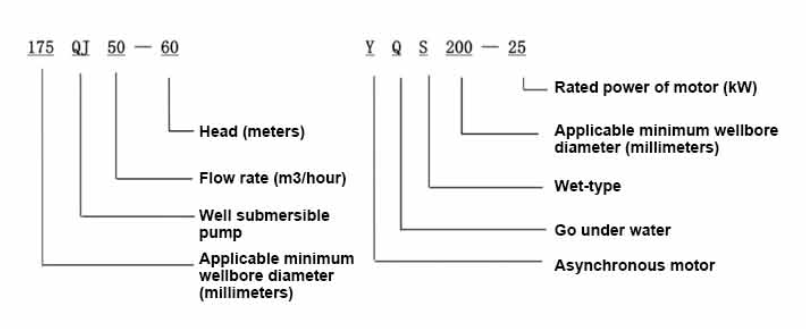Jul . 24, 2024 01:51 Back to list
Understanding the Performance and Efficiency of Three-Phase Submersible Well Pumps in Various Applications
Understanding the 3-Phase Well Pump Efficiency and Applications
In the realm of water extraction and management, well pumps play a crucial role, particularly in agricultural, industrial, and residential sectors. Among the various types of well pumps, the 3-phase well pump stands out for its efficiency and effectiveness. This article delves into the characteristics, advantages, and applications of 3-phase well pumps, elucidating why they are a preferred choice in many pumping operations.
What is a 3-Phase Well Pump?
A 3-phase well pump is an electric pump that operates using a three-phase power supply. This type of pump utilizes three alternating currents that are offset in time, allowing for a more consistent and smoother operation compared to single-phase pumps. Typically, 3-phase pumps are designed for deeper wells where higher lift and flow rates are required. They are commonly used in applications such as irrigation systems, municipal water supply, and industrial processes.
Key Features of 3-Phase Well Pumps
1. Higher Efficiency One of the primary advantages of a 3-phase well pump is its enhanced efficiency. The three-phase power supply allows for a more balanced load on the motor, reducing energy loss and improving overall performance. This efficiency translates to lower operational costs and reduced energy consumption over time.
2. Greater Power and Capacity 3-phase pumps can handle larger volumes of water and achieve greater depths than their single-phase counterparts. This makes them ideal for applications requiring significant lifting capabilities, such as deep well extraction in agricultural settings.
3. Smooth Operation The rotational speed of a 3-phase motor provides a more stable and uniform torque. This minimizes vibrations and wear and tear on the pump components, leading to a longer lifespan and less maintenance.
3 phase well pump

4. Improved Starting Torque 3-phase well pumps deliver higher starting torque, meaning they can handle heavy loads without straining the motor. This is particularly beneficial in applications where the pump is required to start and stop frequently.
Applications of 3-Phase Well Pumps
- Agriculture In farming, 3-phase well pumps are essential for irrigation systems that require large volumes of water. They can efficiently distribute water to multiple fields, ensuring crops receive adequate hydration.
- Industrial Use Many industries, including mining and manufacturing, rely on 3-phase pumps for their water supply needs. These pumps are capable of supporting processes that require consistent water flow and pressure, such as cooling systems and hydraulic processes.
- Municipal Water Supply Cities and towns utilize 3-phase well pumps for their public water supply systems. These pumps can extract water from aquifers and deliver it to treatment facilities, ensuring that communities have access to clean and safe drinking water.
- Commercial Use In various commercial establishments, such as large hotels and restaurants, 3-phase well pumps can provide reliable water supply for kitchens, bathrooms, and laundry facilities.
Conclusion
The 3-phase well pump is a vital component in the efficient management of water resources across multiple sectors. Its capability to deliver high volumes of water with minimal energy consumption makes it an indispensable tool for farmers, industries, and municipalities alike. As the world continues to face challenges related to water scarcity and demand, the importance of efficient water extraction technologies, such as the 3-phase well pump, will only grow. Investing in such advanced pumping solutions can lead to sustainable water management practices, ensuring that we meet our needs without compromising the resources of future generations.
-
Submersible Water Pump: The Efficient 'Power Pioneer' of the Underwater World
NewsJul.01,2025
-
Submersible Pond Pump: The Hidden Guardian of Water Landscape Ecology
NewsJul.01,2025
-
Stainless Well Pump: A Reliable and Durable Pumping Main Force
NewsJul.01,2025
-
Stainless Steel Submersible Pump: An Efficient and Versatile Tool for Underwater Operations
NewsJul.01,2025
-
Deep Well Submersible Pump: An Efficient 'Sucker' of Groundwater Sources
NewsJul.01,2025
-
Deep Water Well Pump: An Efficient 'Sucker' of Groundwater Sources
NewsJul.01,2025
-
 Submersible Water Pump: The Efficient 'Power Pioneer' of the Underwater WorldIn the field of hydraulic equipment, the Submersible Water Pump has become the core equipment for underwater operations and water resource transportation due to its unique design and excellent performance.Detail
Submersible Water Pump: The Efficient 'Power Pioneer' of the Underwater WorldIn the field of hydraulic equipment, the Submersible Water Pump has become the core equipment for underwater operations and water resource transportation due to its unique design and excellent performance.Detail -
 Submersible Pond Pump: The Hidden Guardian of Water Landscape EcologyIn courtyard landscapes, ecological ponds, and even small-scale water conservancy projects, there is a silent yet indispensable equipment - the Submersible Pond Pump.Detail
Submersible Pond Pump: The Hidden Guardian of Water Landscape EcologyIn courtyard landscapes, ecological ponds, and even small-scale water conservancy projects, there is a silent yet indispensable equipment - the Submersible Pond Pump.Detail -
 Stainless Well Pump: A Reliable and Durable Pumping Main ForceIn the field of water resource transportation, Stainless Well Pump has become the core equipment for various pumping scenarios with its excellent performance and reliable quality.Detail
Stainless Well Pump: A Reliable and Durable Pumping Main ForceIn the field of water resource transportation, Stainless Well Pump has become the core equipment for various pumping scenarios with its excellent performance and reliable quality.Detail
